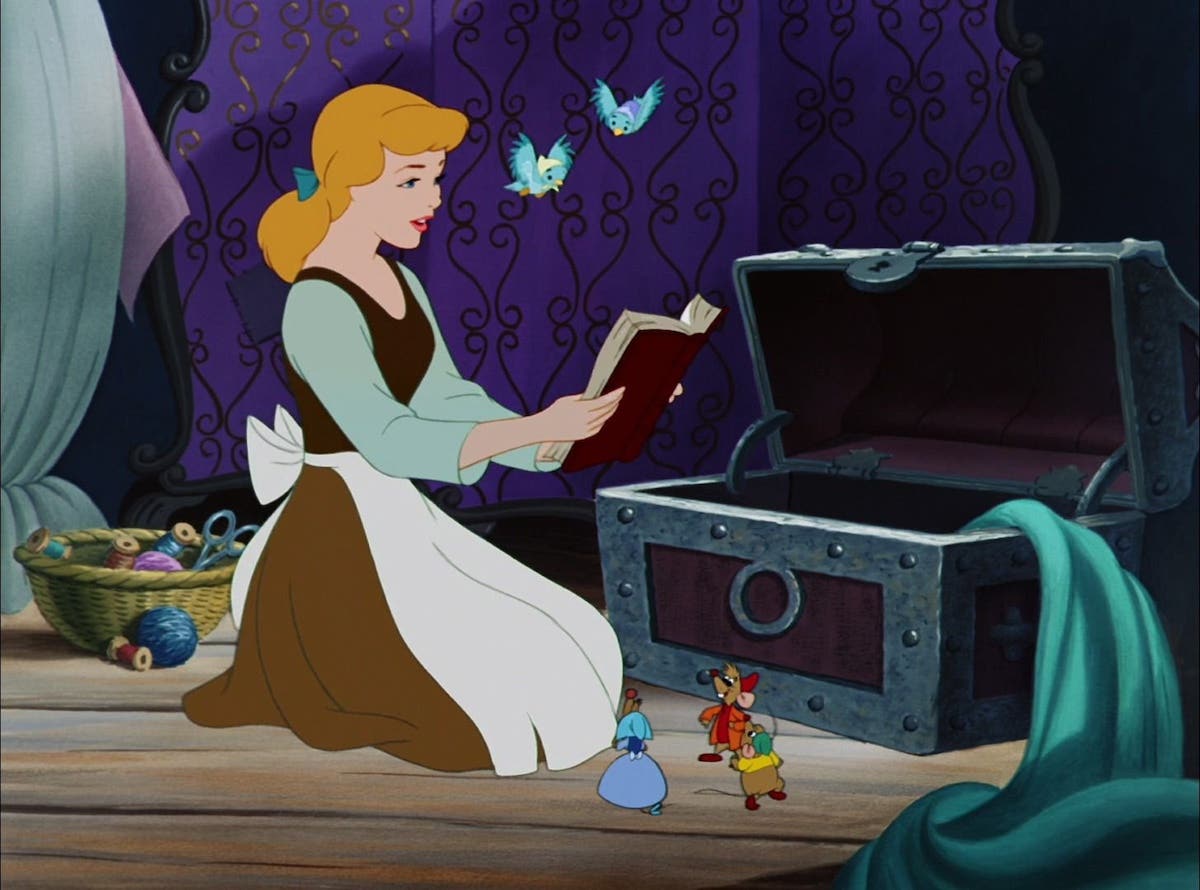PrimeTime: How To Find a Writing Partner … and Why You Shouldn’t Hire Someone Else to Pitch Your Ideas
Finding a writing partner isn’t about finding someone who makes you more hire-able. It’s about finding someone who makes you a better writer.
Today's first question comes from Lisa, a Canadian writer hoping to attend some U.S. pitch festivals. Lisa writes:
Since I'm paying about $2K each trip and [...] I'm not an independently wealthy woman […] a friend suggested I try to find a university student or someone else to pitch for me at one of the events. Are there reputable people out there who do such things?
Well, Lisa, there are enough people in this world who will do anything for money that I'm sure, if you were to offer enough cash, you'd have no problem finding someone to pitch for you. Having said that …
I wouldn't recommend doing this.
Here's why:
Young TV writers often think they're coming to Hollywood to sell their ideas. And if their idea is strong enough, and it's pitched well, that should be sufficient to make a sale.
But this isn't how it works.
As I've written before, the television industry's not interested in "ideas"; they're interested in creative, talented writers. In fact ...
Ideas -- no matter how good — are a dime a dozen.
What are not a dime a dozen, however, are good writers -- visionary creators who can actually execute an idea in a fresh, exciting way.
… Which is why most networks, studios, or production companies will buy a familiar idea from a creator they believe in before they'll buy a fresh idea from someone they don't.
After all, on paper, the ideas for The Cosby Show and Everybody Loves Raymond are pretty similar: befuddled dads attempt to navigate marriage and parenthood. But no one would accuse Phil Rosenthal and Ray Romano of ripping off Bill Cosby. Those shows see the world totally differently; they execute similar concepts in completely different ways. The same goes for Psych and The Mentalist. Or the myriad of cop shows and procedurals on TV. The ideas themselves aren't that unique … but the executions, the visions of the storytellers, make them stand out.
This is why your ideas, in and of themselves, are virtually worthless. What you should be hoping to sell is NOT your TV idea … but your self. Your vision, your creativity, your worldview, your sense of humor, your charm, poise, and affability.
And it's not possible to sell these things if you're sending a proxy to present your idea — especially a "college student or someone else" you've never met. It'd be like going on a first date, and sending a stranger in your stead … but still hoping the guy falls in love you.
Now, having said all this … one scenario that might work is if you have a bona fide writing partner … and only of you goes to the meetings or festivals. It would still be ideal to have both of you there, of course, but if you can't both afford to go each time, at least you're sending someone who's a co-creator/writer, an invested partner, of the work.
… Which leads to our third question of the week, which comes from Ana Maria. Ana Maria writes:
I have taken several screenwriting classes, workshops and such [...] but never, until now, decided to sit my butt on the chair and commit to my dream of writing. I'm finally progressing past the "fears" and "procrastinations" [...] and going for it.
I am currently looking for a comedy scriptwriting partner for a feature. Can you give me advice on where best to meet my writing partner? I thought about posting an ad on Craigslist, but then felt hesitant. There's also a place I read about called "The Writer's Junction" in Santa Monica ... a place where writers (members) go to write. I appreciate any words from you.
Well, first of all, Ana Maria — congrats on taking the plunge! Truly committing to being a writer, making it a priority of all else — family, friends, jobs, etc. — is something most aspirants never actually do … and it's one of the biggest reasons most people never make it.
As for finding a writing partner … there's no catch-all, cure-all, "silver bullet" answer, but what I can say is this:
Choosing a writing partner should not be an arbitrary decision.
It's like finding your husband or wife — you need real connection, understanding, intimacy, trust.
In some ways, you will be more open, more emotionally intimate, with your writing partner than your spouse.
After all, you need to share with them your deepest secrets, darkest desires, most hidden fears. All the sacred stuff you'd write about on your own, you must now share with another person. If you have unspoken feelings about your family, your parents, your spouse, your children, your sibling … and those feelings can somehow contribute to a story, character or scene … you need to share them.
You also need to let your partner into your writing process, something that's not always easy to do. For example, I never let my wife read anything I've written until its final draft. But you need to be comfortable enough with your writing partner to share your worst work, your sloppiest outlines, your lamest ideas.
I often get questions from people, mainly out-of-towners, asking how they can get an L.A.-based writing partner … because they falsely think this will help them break into the industry.
But this is like asking how you can find and marry a wife who works in manufacturing so you can, some day, run a factory.
It's simply not how it works … and it won't lead to a happy, productive relationship.
On the flip side, I once consulted with a young writer (we'll call her "Emily") who wanted to partner with her husband (we'll call him "Frank"). Emily thought that partnering with Frank, and presenting themselves as a married writing team, would give them an interesting leg up, a marketable hook — like Robert and Michelle King, the married co-creators of The Good Wife. Also, Frank was good at some of the "business" things Emily needed: sticking to deadlines, organizing research, etc.
However … Frank wasn't a writer! He had no interest in writing! He was willing to go along with the plan to support his wife, but he didn't understand the first thing about telling a story.
As I explained to Emily — a "marketing hook" doesn't make you hire-able as a writer (or as a writing team). What makes you hire-able is good writing.
Second of all, if you need someone to keep you on task, help you organize thoughts or research, schedule your writing day, etc … you don't need a partner; you need an assistant.
A writing partner is a bona fide writer … and hopefully one you trust, respect, admire, and support enough so that — like a good marriage — you write better together than apart.
So … if you're looking for a real writing partner, here are some tips:
• JOIN A WRITERS GROUP. Every city has writers groups. Some are for novelists, others for poets, others for nonfiction writers or playwrights. Whatever your medium or genre, find a group and you'll immediately be introduced to writers and creative people. Hopefully, you'll connect with one of them and eventually decide to write together. (And don't be afraid to shop around a bit; the first writers group you try may not be the right fit … but maybe the sixth one will!) (Also, click HERE to visit my April 19th post, "Using or Starting a Writers Group.")
• JOIN OTHER "LITERARY" GROUPS. This could be a book club, a movie club, a gaming group, a sci-fi collectors' club … any group that shares your passions. If you're a writer who loves this stuff, you'll probably find others.
• WORK ON LOCAL FILM OR THEATER PRODUCTIONS. Independent productions, including regional or community theaters, are always looking for extra pairs of hands … so chip in! You'll not only meet people as passionate about film, theater, TV, or storytelling as you are … but these places are packed with aspiring writers, directors, artists, and creators.
• TAKE A WRITING CLASS. Whether through a professional program at a major university or an adult ed class at a community college, you'll immediately meet other people sharing your goal: writing something to sell or use. By working together and sharing your pieces each week, you'll also get a sense of whose work your admire and enjoy … and who would be a good candidate for your partnership!
• MEET PEOPLE AT COFFEE SHOPS, BOOKSTORES, LIBRARIES … EVEN YOUR OFFICE. Do you always notice the same girl reading fantasy novels in your favorite corner of the bookstore? Do you keep running into the same guy in the library's "new arrival" section? Literary types tend to frequent the same types of places, so don't be afraid to reach out and introduce yourself! Also, many corporations nowadays host social gatherings or offer "extracurricular" activities for employees with similar interests: book clubs, hiking excursions, etc. Begin sniffing around these places; you'll undoubtedly find people — and probably writers — who share your interests. (And go ahead and post flyers on bulletin boards or walls; musicians do this when looking for bandmates — why shouldn't writers?!)
• JOIN ONLINE WRITERS GROUPS AND DISCUSSION BOARDS. I don't know that this is the most "reliable" way to go … and personally, I wouldn't want an out-of-town writing partner who I didn't know well … but hey — online dating sometimes works, so I don't see why this couldn't! The key is to make sure you partner with someone you truly trust and mesh with; if you feel like you can gauge that over the Internet, then go for it! (As for Craigslist, Ana Maria, I don't think there's anything wrong with posting something on Craigslist. But just like with finding a spouse, it may not be the most efficient process. You may get no one … or you may find yourself inundated with responses. Either way, you don't want to take the first candidate that comes along; your goal is to find the right special someone -- not just a warm body.)
Anyway, guys — I hope this helps!
Thanks again for all the questions … if you have others please post them in the comment section below, email me at chad@chadgervich.com, or tweet me @ChadGervich.




![The Era of the Multi-Hyphenate: An Interview With Writer and Filmmaker Mario O. Moreno [SERIES]](https://scriptmag.com/uploads/MjEzMTEyNzA4NjQ2NTc3NjE1/the-era-of-the-multi-hyphenate-series-script-hero.png?format=auto&optimize=high&width=1440)


